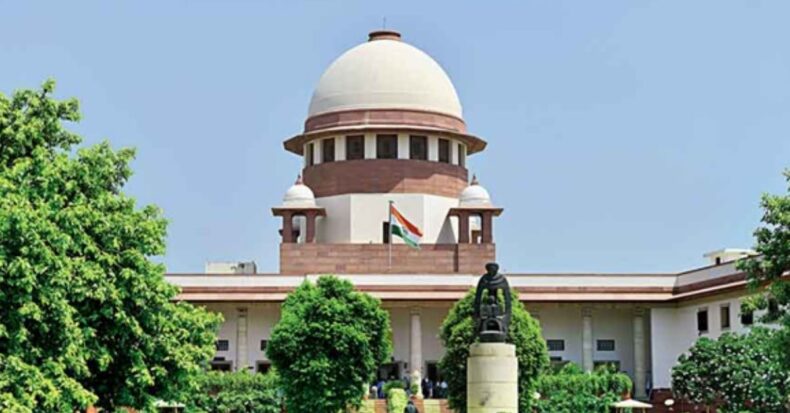The Case
On Friday, The Supreme Court held that the Central Bureau of Investigation (CBI) doesn’t need to conduct a preliminary inquiry (PE). Instead, the agency can directly register a First Information Report (FIR) under the Code of Criminal Procedure, Prevention of Corruption Act (Section 13 (1) (e)) or the investigative agency’s manual.
It also ruled that the accused can’t insist on PE as a right. The apex court said it while reviving a case disproportionate asset case against Adimulapu Suresh, the education minister of Andhra Pradesh and his wife, an IRS officer.
The couple cited that CBI needed to conduct a PE before registering an FIR against public servants.
A three-justice bench comprising Justice D Y Chandrachud, VikramNath and B V Nagarathna set aside an order of Telangana High Court dated February 10 2020, to quash the FIR against Adimulapu Suresh and his wife, Vijayalakshmi.
The Chennai Unit of CBI, in its registered FIR on September 10 2017, under PCA for alleged possession of assets, has claimed that the couple acquired assets worth over Rs5.55 crore against the income of over Rs 4.84 crore in-between the period of April 1, 2016, to February 29, 2016.
It also said that there was a 22.86% jump in their income. The assets worth of that income jump is Rs 1.2 crore.
The Circumstances
The top national court, moving forward by differing the decision of the high court, Justice D Y Chandrachud clarified in its 64-page verdict that if the CBI felt that the information they already received through a complaint or ‘source information’ lights on the matter as a cognizable offence then PE is not mandatory before FIR. They can directly register a regular case.
After setting aside the initial FIR, the High Court had asked CBI to conduct PE under the CBI manual, 2005.
Additional Solicitor General Aishwarya Bhati appealed against the decision. She appeared on behalf of CBI and put forward her argument, saying the CBI manual does not make it mandatory to conduct a PE before registering an FIR.
The Apex Court underscored while keeping aside High Court decision saying that a PE is valuable in corruption cases but not as a right of the accused but to ensure that there is no abuse of law to target public servants.
The couple had argued that CBI had no jurisdiction to register a case in Andhra Pradesh because the state had withdrawn general consent in November of 2018. The court replied that the approval by the State of Tamil Nadu still stands because the FIR was registered in Chennai.
Post Procedure
However, The Apex Court also stated that the decision does not take away the value of conducting a PE. A PE should be taught in an appropriate case because registering a regular case can be disastrous if the allegations turn out to be false.
The bench said that a PE has to stop as soon as the officers have collected enough material to access the documentary records and speak to persons related who would disclose the cognizable offence.
The Supreme Court also said that the Telangana High Court has the power to quash an FIR, but it had acted beyond the settled parameters.
Also, the single judge put on the role of a chartered accountant while ignoring that the court was not at a stage of trial or an appeal against a verdict in trial.
The Judgement
The bench’s judgement said Mr Suresh to be an alleged ‘abettor.’ However, the court refused to adjudicate and left the arguments open regarding the jurisdiction of the Telangana High Court.












